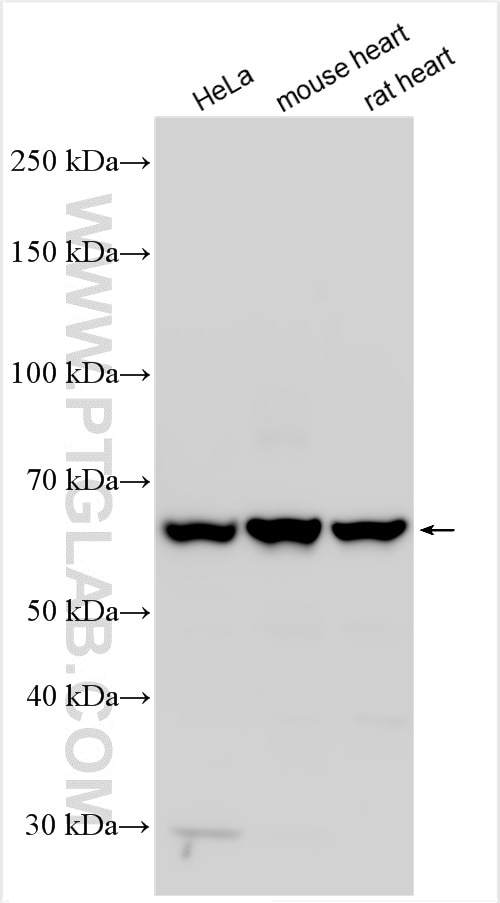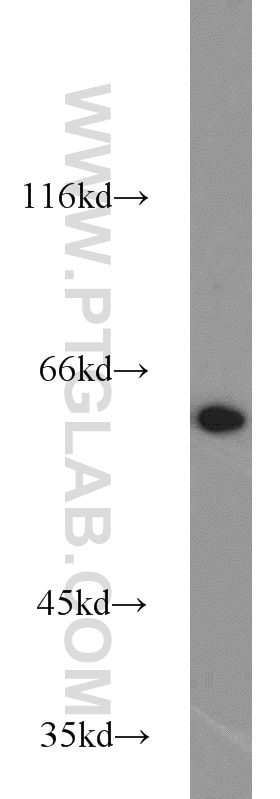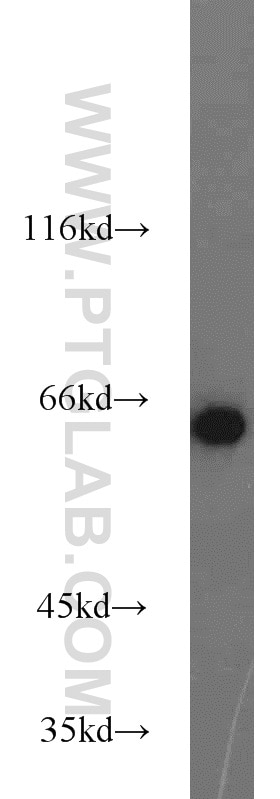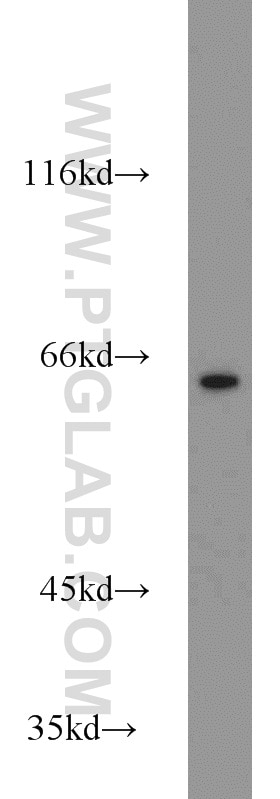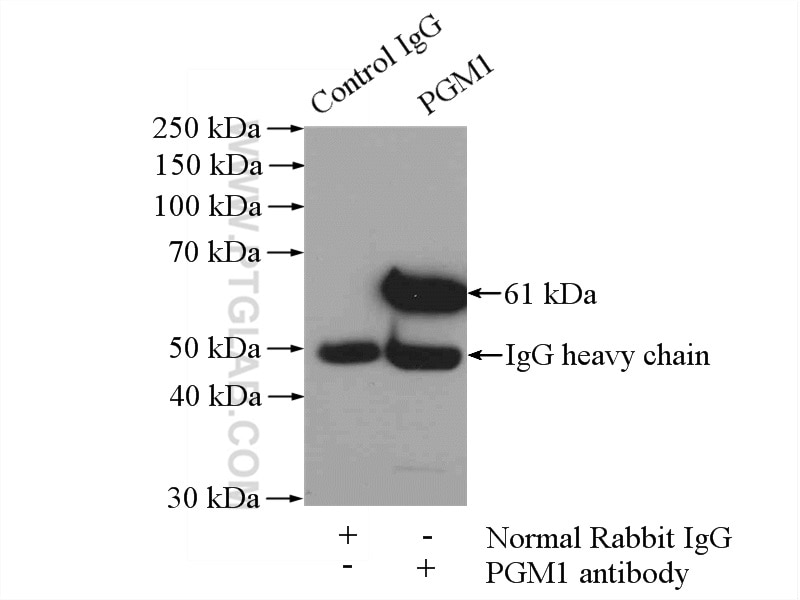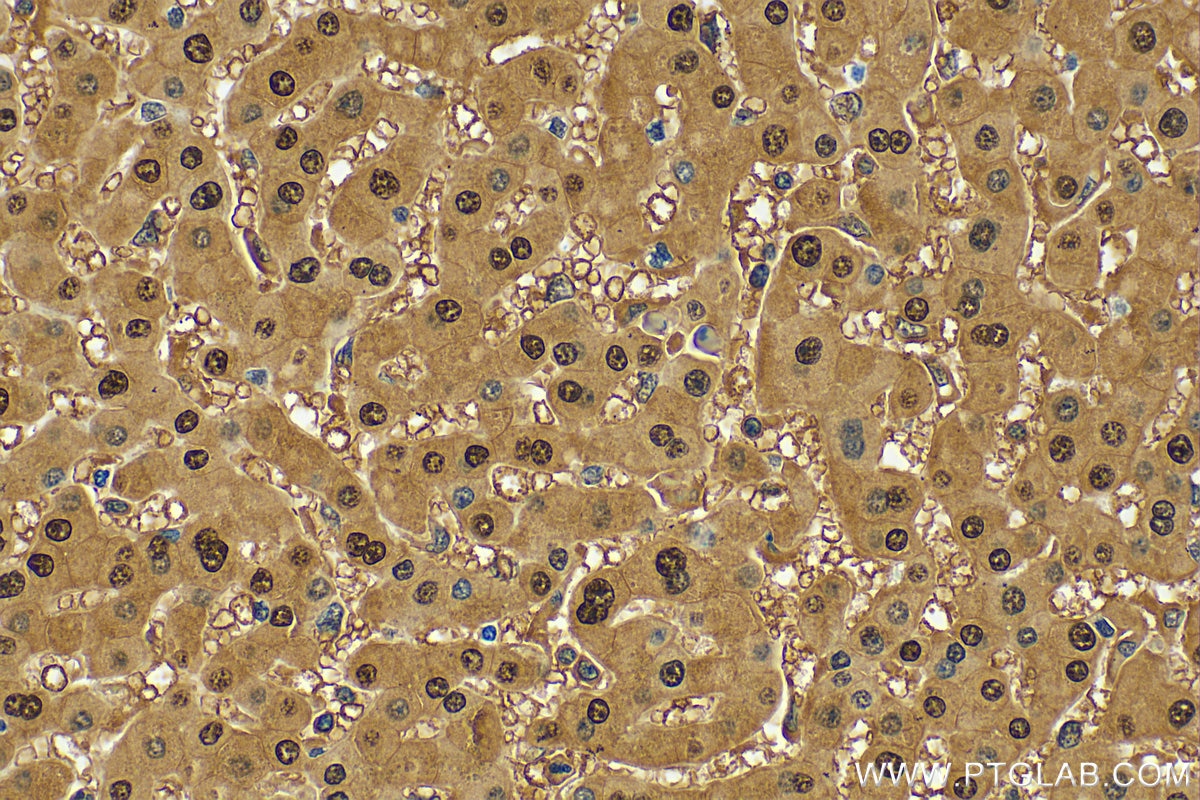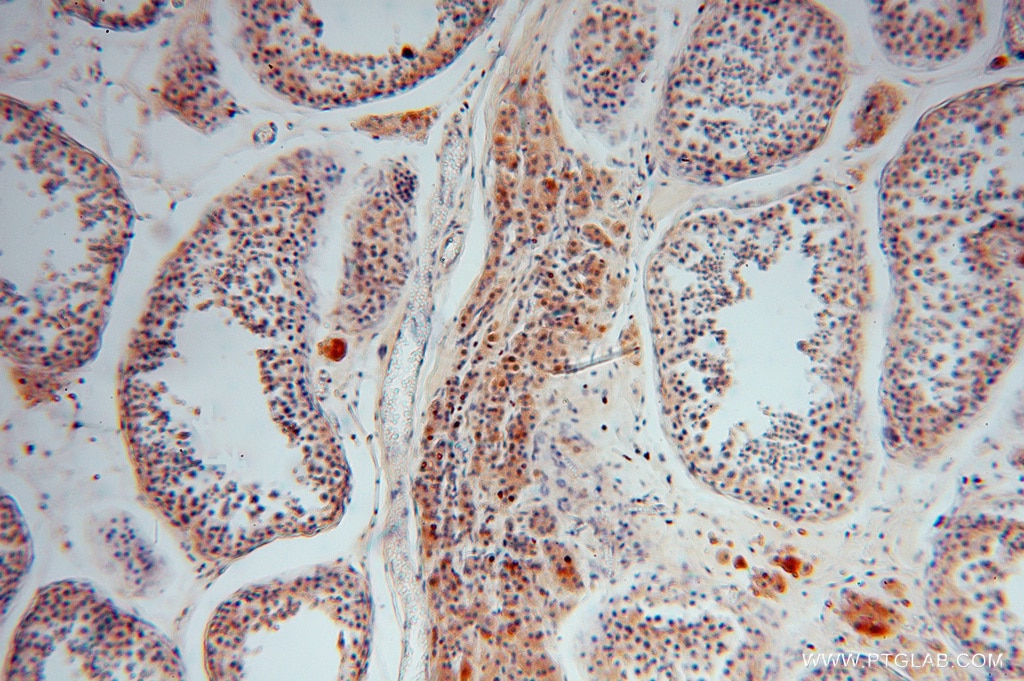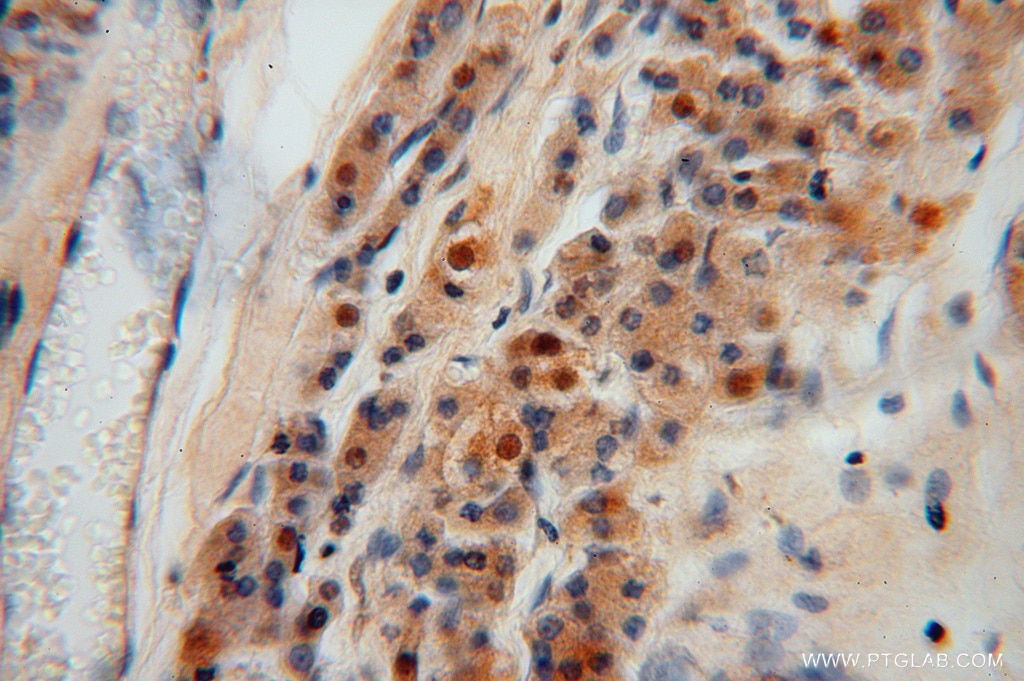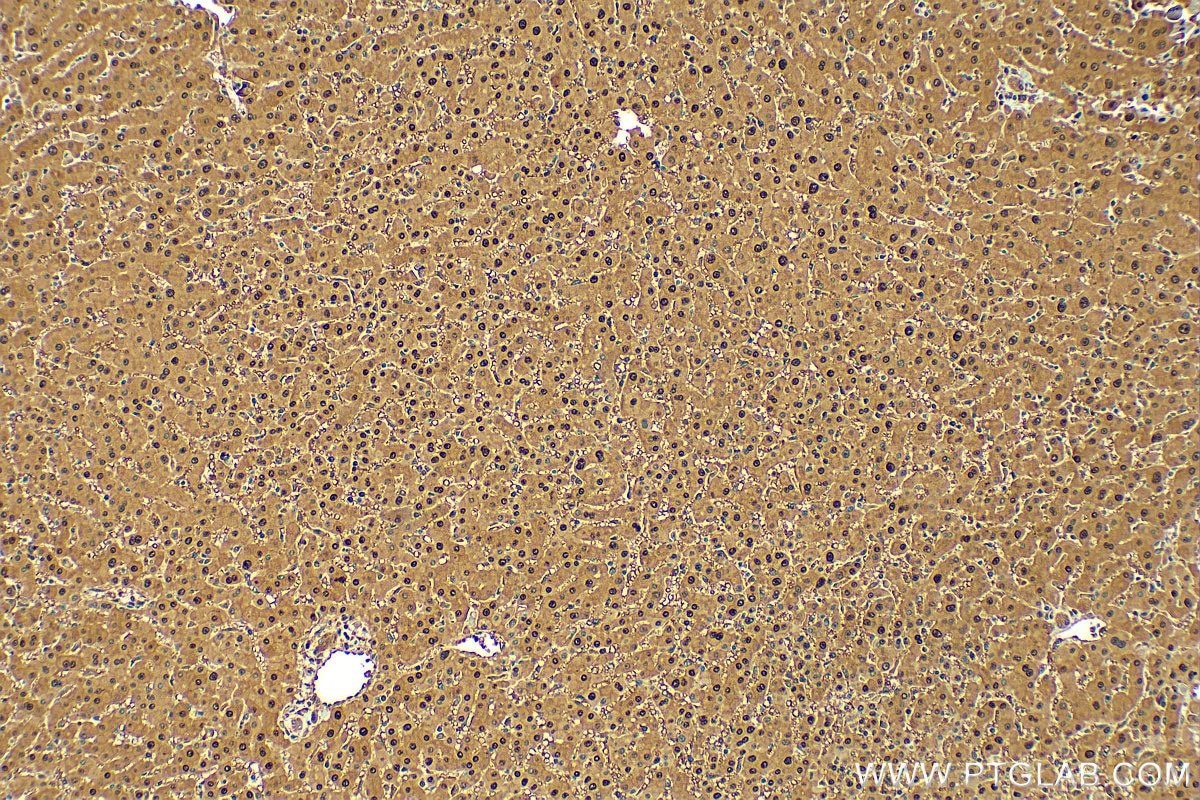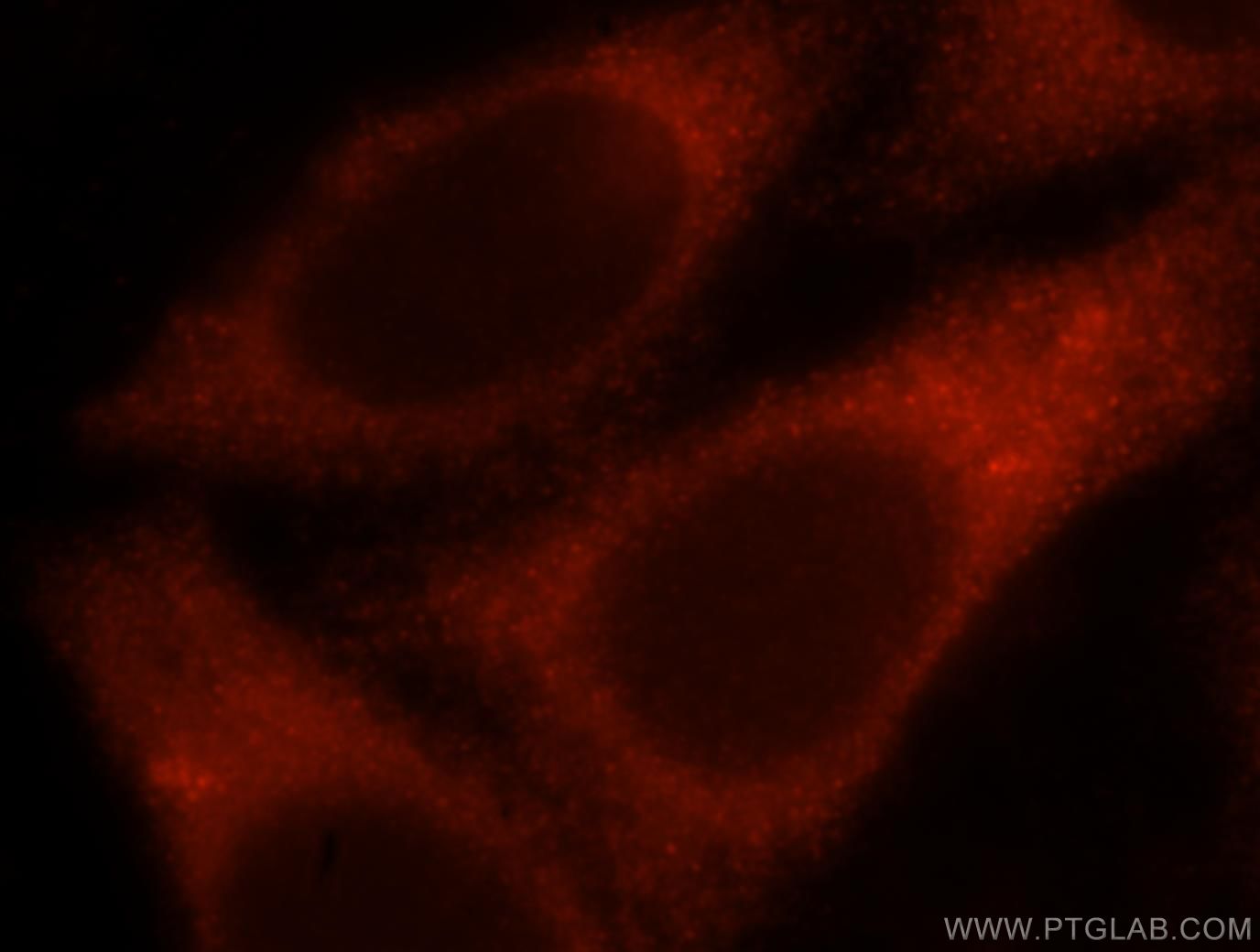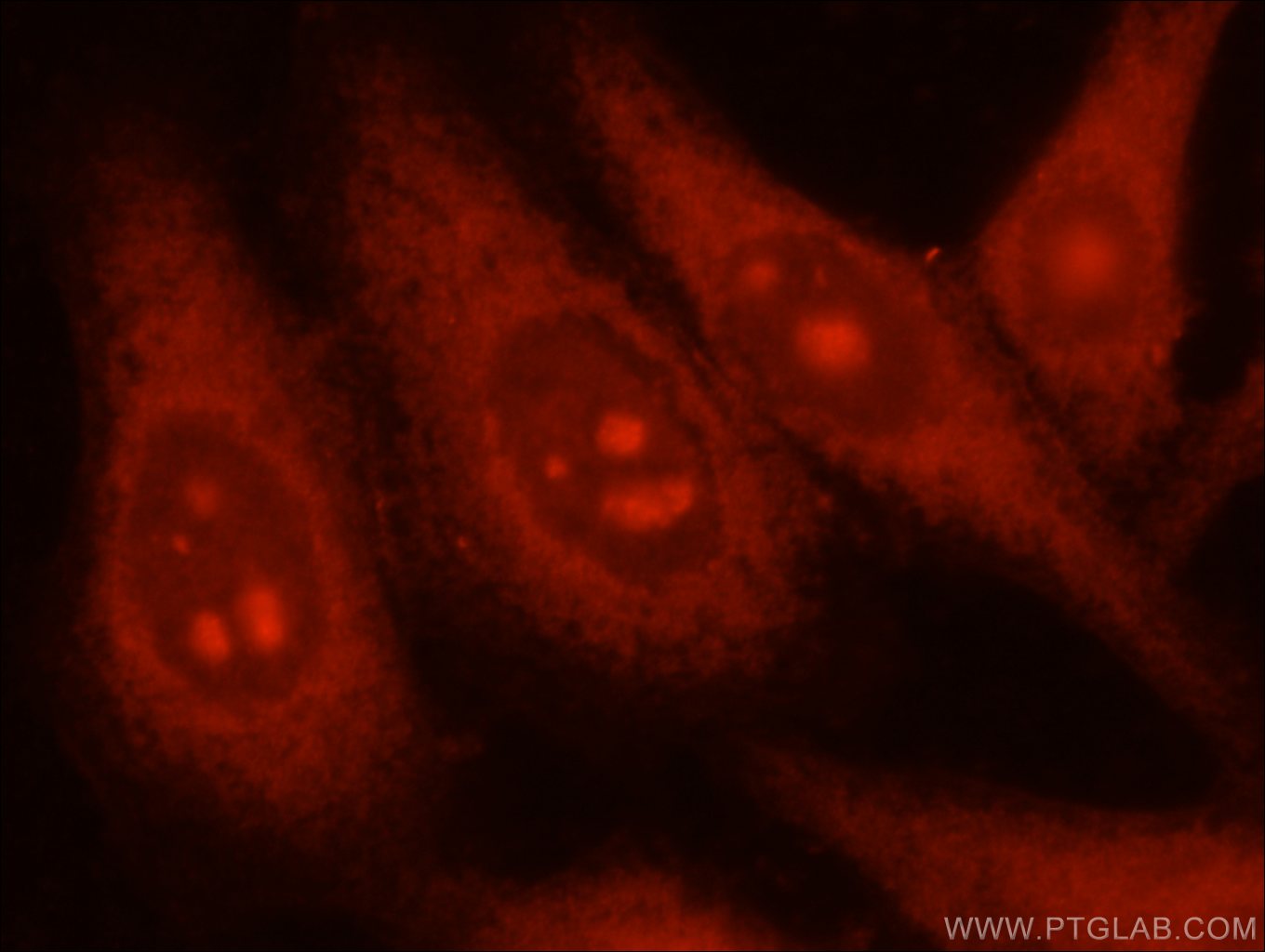Tested Applications
| Positive WB detected in | HeLa cells, mouse skin tissue, HEK-293 cells, Jurkat cells, mouse heart tissue, rat heart tissue |
| Positive IP detected in | mouse skin tissue |
| Positive IHC detected in | human hepatocirrhosis tissue, human testis tissue Note: suggested antigen retrieval with TE buffer pH 9.0; (*) Alternatively, antigen retrieval may be performed with citrate buffer pH 6.0 |
| Positive IF/ICC detected in | HepG2 cells |
Recommended dilution
| Application | Dilution |
|---|---|
| Western Blot (WB) | WB : 1:2000-1:16000 |
| Immunoprecipitation (IP) | IP : 0.5-4.0 ug for 1.0-3.0 mg of total protein lysate |
| Immunohistochemistry (IHC) | IHC : 1:400-1:1600 |
| Immunofluorescence (IF)/ICC | IF/ICC : 1:20-1:200 |
| It is recommended that this reagent should be titrated in each testing system to obtain optimal results. | |
| Sample-dependent, Check data in validation data gallery. | |
Published Applications
| KD/KO | See 1 publications below |
| WB | See 14 publications below |
| IHC | See 4 publications below |
| IF | See 1 publications below |
| IP | See 1 publications below |
Product Information
15161-1-AP targets PGM1 in WB, IHC, IF/ICC, IP, ELISA applications and shows reactivity with human, mouse, rat samples.
| Tested Reactivity | human, mouse, rat |
| Cited Reactivity | human, mouse, rat |
| Host / Isotype | Rabbit / IgG |
| Class | Polyclonal |
| Type | Antibody |
| Immunogen |
CatNo: Ag7269 Product name: Recombinant human PGM1 protein Source: e coli.-derived, PGEX-4T Tag: GST Domain: 213-562 aa of BC001756 Sequence: SGPNRLKICIDAMHGVVGPYVKKILCEELGAPANSAVNCVPLEDFGGHHPDPNLTYAADLVETMKSGEHDFGAAFDGDGDRNMILGKHGFFVNPSDSVAVIAANIFSIPYFQQTGVRGFARSMPTSGALDRVASATKIALYETPTGWKFFGNLMDASKLSLCGEESFGTGSDHIREKDGLWAVLAWLSILATRKQSVEDILKDHWQKHGRNFFTRYDYEEVEAEGANKMMKDLEALMFDRSFVGKQFSANDKVYTVEKADNFEYSDPVDGSISRNQGLRLIFTDGSRIVFRLSGTGSAGATIRLYIDSYEKDVAKINQDPQVMLAPLISIALKVSQLQERTGRTAPTVIT Predict reactive species |
| Full Name | phosphoglucomutase 1 |
| Calculated Molecular Weight | 61 kDa |
| Observed Molecular Weight | 61 kDa |
| GenBank Accession Number | BC001756 |
| Gene Symbol | PGM1 |
| Gene ID (NCBI) | 5236 |
| RRID | AB_2161415 |
| Conjugate | Unconjugated |
| Form | Liquid |
| Purification Method | Antigen affinity purification |
| UNIPROT ID | P36871 |
| Storage Buffer | PBS with 0.02% sodium azide and 50% glycerol, pH 7.3. |
| Storage Conditions | Store at -20°C. Stable for one year after shipment. Aliquoting is unnecessary for -20oC storage. 20ul sizes contain 0.1% BSA. |
Background Information
PGM1(Phosphoglucomutase-1) is also named as glucose phosphomutase 1 and belongs to the phosphohexose mutase family. It catalyzes the transfer of phosphate between the 1 and 6 positions of glucose. In most cell types, PGM1 isozymes predominate, representing about 90% of total PGM activity. One exception is red cells, where PGM2 is a major isozyme(PMID:8257433). Defects in PGM1 are the cause of glycogen storage disease type 14 (GSD14)(PMID:19625727). It has 2 isoforms produced by alternative splicing.
Protocols
| Product Specific Protocols | |
|---|---|
| IF protocol for PGM1 antibody 15161-1-AP | Download protocol |
| IHC protocol for PGM1 antibody 15161-1-AP | Download protocol |
| IP protocol for PGM1 antibody 15161-1-AP | Download protocol |
| WB protocol for PGM1 antibody 15161-1-AP | Download protocol |
| Standard Protocols | |
|---|---|
| Click here to view our Standard Protocols |
Publications
| Species | Application | Title |
|---|---|---|
Cell Metab Fibroblasts Mobilize Tumor Cell Glycogen to Promote Proliferation and Metastasis.
| ||
Brain C9orf72 expansion within astrocytes reduces metabolic flexibility in amyotrophic lateral sclerosis. | ||
J Hazard Mater Integrative proteomics and metabolomics approach to elucidate metabolic dysfunction induced by silica nanoparticles in hepatocytes. | ||
Cancer Lett Trim21-mediated HIF-1α degradation attenuates aerobic glycolysis to inhibit renal cancer tumorigenesis and metastasis. | ||
Biochim Biophys Acta Mol Basis Dis Sec13 promotes glycolysis by inhibiting Ubqln1 mediated Pgm1 ubiquitination in ALI | ||
Front Cell Dev Biol Hypoxia-immune-related microenvironment prognostic signature for osteosarcoma |
Reviews
The reviews below have been submitted by verified Proteintech customers who received an incentive for providing their feedback.
FH Patricia (Verified Customer) (02-25-2020) | Works very well.
|

